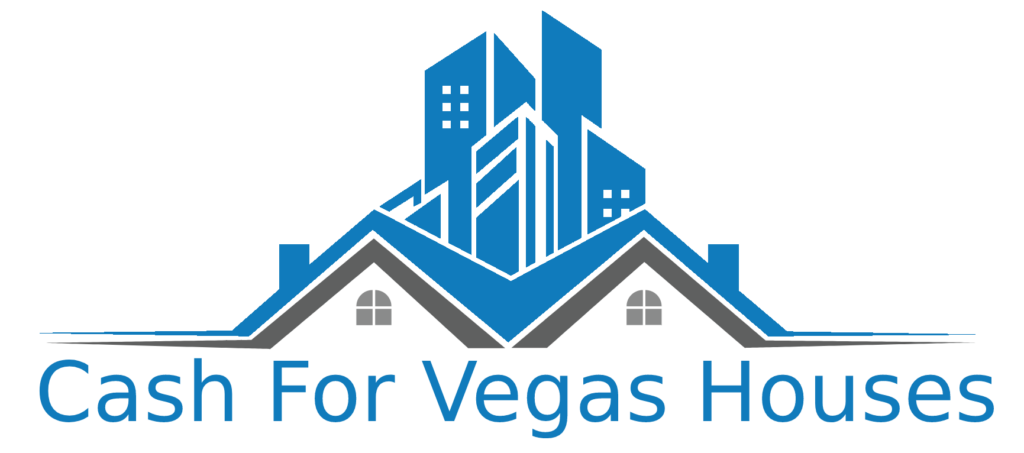While this impending sale looms, many homeowners remain in a position where they absolutely must get their homes sold. Whether it be moving for personal, financial, or simply greater comfortable surroundings, it is necessary to know how to sell a house with a mortgage. This blog post should put you through the necessary steps and considerations you’ll want to keep in mind as you make decisions that will help optimize your chances at selling without a hitch.
Selling one’s Las Vegas home with a mortgage ought to be approached with an unearthed perspective. This means gaining knowledge on mortgage status, balancing equity of the home, working through the closing process, which calls for careful planning.
This comprehensive guide shall expound on the Las Vegas market, the upside for cash buyers, and the lost insights into selling one’s property.
Thus, in the end, you become familiar with all that occurs when selling a house with a mortgage while making profits and keeping complex issues at bay.
Understanding Mortgages
A mortgage refers to a loan released for buying real estate property against which the property itself acts as security. This means that if the borrower does not make the mandated payments, the lender has the power to take over that property through foreclosure proceedings.
Mortgages are often long-term loans, normally running from fifteen to thirty years. Loans allow homeowners to disperse the home cost over an extended period of time.
How Mortgages Work: Principal, Interest, and Amortisation
For the purposes of understanding how mortgages function, we have broken down key components of the mortgage into the following:
Principal
The principal is the amount of money borrowed in order to purchase the home. Taking monthly payments will reduce the balance of the total loan.
Interest
This is the cost of borrowing the money, expressed as an annual percentage rate (APR). Typically the interest payments are heavier during the first few years of the loan and decrease later on.
Amortization
The amortisation is that process by which a loan is progressively paid off through regular monthly payments. Each monthly payment consists of two parts: one which reduces the principal and another that pays the interest.
Over time the proportion of the mortgage payment that goes to the principal increases and the proportion applied to interest decreases.
Initial Steps to Take
This section will focus on how selling one is put into effect with a mortgage.
Assessing Your Mortgage Balance
Determine the mortgage balance you currently owe. It is easier to determine the amount of money you owe on your mortgage during the sale of your house. After all, your mortgage lender might expect to receive payment.
To find out what that amount is, you will need either your latest mortgage statement or a call to your lender.
Knowing how much you owe the mortgage lender is invaluable in that it helps you know how much money you have to pay up when you sell the house.
Determining Your Home’s Market Value
Next, you shall determine your home’s market value. It is the amount for which someone would pay for this house in the current capacity of the real estate market.
You can gauge it by observing recent sales of similar homes nearby, also referred to as comparables or “comps.”
For a better appraisal, think of bringing in a professional appraiser or consult a knowledgeable agent about the Las Vegas market.
Calculating Your Home Equity
The simplest way of calculating equity in a house is to write down the value of your house, say market value, and then subtract the amount you owe on your mortgage from the result; we shall appreciate this example further.
For example, if your home is worth $400,000 and you owe $250,000 on your mortgage, your equity would come out to be $150,000.
This equity represents your ownership stake in the house and thus is an important component of planning your finances while selling the house.
Positive equity means you could pay off your mortgage and still have money left over; while negative equity (owing more than your home is worth) could make putting your home up for sale trickier.
The Selling Process
The basic steps in the selling process go as below:
Listing Your Home: Traditional vs. Cash Buyers
When selling a house with a mortgage, it is possible to choose either traditional listing or cash buyers.
Traditional Listing
This is where the real estate agent lists your home, manages showings, and negotiates with the buyer. The whole process can take some months; however, in the end, a higher sale price benefits the seller.
Cash Buyers
In general, selling to cash buyers is often faster and more straightforward. Such buyers, Cash for Vegas Houses, are generally investors who want to take over a property as rapidly as possible and do not need a mortgage.
This can work to your benefit if you want to sell your home quickly.
Preparing Your Home for Sale: Repairs, Staging, and Marketing
In order to attract buyers and get the best possible price for the house, it is important to prepare the house well before it goes on the market:
Repairs
Before listing the home for sale, take care of all necessary repairs; this includes fixing leaks, mending damaged walls, and ensuring that all systems-plumbing, electrical, and HVAC-are working fine.
Staging
Staging is what puts furniture and decor in an arrangement that displays the property more attractively before potential buyers. It does this by allowing the buyers to visualize themselves living in that space.
Marketing
The marketing then is essential for luring buyers in. Such marketing includes professional photography, online listings, open houses, and promotions on social networks. An estate agent can help you structure a complete marketing strategy.
Finding a Real Estate Agent Experienced with Mortgage Sales
When working with an agent who understands selling a home that has a mortgage, he/she can provide far more information than any book could. Besides knowing how to price a home right, the agent will be able to work to help you with many of the finer points in negotiating with buyers.
Find any reliable agent from climb.com or zillow.com who seems to know the Las Vegas market very well and has really good reviews from clients. One would want to look for someone who knows current market trends and who has a list of buyers available.
What Happens to Your Mortgage When You Sell?
When selling your house with a mortgage, remember these pointers:
Paying Off the Mortgage: How the Sale Proceeds Are Used
In a process whereby one sells one house that is mortgaged, one earlier uses the proceeds to pay back any remaining balance on the mortgage still in place. This is usually handled by the closing agent or an escrow company.
The escrow company will contact your lender to obtain a payoff amount that consists of the remaining principal, any interest that has accrued since the last payment, and any fees due.
After your mortgage has been paid off, the remaining funds are yours to keep.
Understanding the Payoff Amount vs. Remaining Balance
You must realize that the payoff amount is slightly different from the remaining balance reflected on your mortgage statement.
The payoff amount is the sum of the remaining principal, interest due since the last payment, and any fees or penalties due.
This could mean that, because there is a prepayment penalty in your loan terms, additional charges are incurred to pay off the loan prior to term expiration.
Always ask your lender for an official payoff amount so that you can be sure you have the right figure.
Handling Prepayment Penalties and Other Fees
Certain loan and mortgage agreements, it is not uncommon to find borrower prepayment penalties; that is, lenders charge a fee for borrowers who cancel such contracts ahead of an agreed-upon schedule.
Such charges are to ensure that lenders make good on their income losses.
It is vital that you learn the specifics of your mortgage, paying particular attention to the prepayment penalties.
There might, however, be additional charges to pay, be they administrative or recording fees, when a mortgage is cleared.
Selling to Cash Buyers
Some of the benefits and relative aspects of selling the house to cash buyers in Las Vegas are as follows:
Benefits of Selling for Cash: Speed, Simplicity, and Certainty
With the money in hand, selling a house can be remarkably easy, especially in Las Vegas, if you wish to sell in a hurry.
Speed
Closing can take place significantly faster in cash transactions as there is no waiting for the approval of a mortgage, which could sometimes drag on for weeks or months.
Simplicity
In general, the process is much easier. There are fewer contingencies; you don’t have to worry about loan approval; you don’t have to deal with a mountain of paperwork. As a result, it should not come as a surprise to learn that, if you sell for cash, the process will be considerably more effortless and less stressful.
Certainty
Cash buyers are very often investors prepared to buy a property in its existing condition. This means you don’t need to worry about a deal falling through because you can’t find financing or find anything wrong with the property after a lengthy home inspection.
The certainty of a cash offer can give peace of mind and provide financial security.
How Cash Buyers Handle Mortgages
The process for handling one’s mortgage becomes easier when selling to a cash buyer. The closing agent typically helps a cash buyer work with the seller’s lender to pay off the mortgage upon closing. This is generally how it works:
Offer and Acceptance:
Upon accepting the cash offer, the buyer shall deposit with an escrow the agreed amount.
Payoff Statement:
The closing agent will request a payoff statement from the lending institution so as to know exactly how much should come in to pay off the seller’s mortgage..
Closing
Closing is the process whereby the lender should provide the cash buyer with whatever amount needed to pay off the seller’s existing mortgage at the closing table, and whatever remaining proceeds can be given to the seller.
This eliminates the need to worry about the most unpleasant part of closing the mortgage. The seller benefits by avoiding the need to manage a direct mortgage payoff.
Tips for Finding Reputable Cash Buyers in Las Vegas
Finding a reputable cash buyer is a decisive step in ensuring the smoothest and fairest transaction. Here are a few tips that can help you find trustworthy cash buyers in Las Vegas.
Research and Reviews
Check platforms like Google Reviews and the Better Business Bureau for their credibility.
Local Expertise
Opt for those buyers with past real estate experiences in Las Vegas. A local buyer will most likely understand the market dynamics and set fair prices.
Professional Associations
Buyers who are members of professional associations, like the National Association of Realtors (NAR) and local real estate investment groups, would be preferable.
Membership in these organizations generally denotes an adherence to high ethical standards in business conduct.
Transparent Communication
Trustworthy cash buyers share details about how they operate and openly answer any questions that you have. They create precise written offers, and they do not charge secret fees or have any undisclosed terms.
Closing the Sale
Several points shall require some degree of consideration prior to the closing of a mortgage sale of a house:
The Closing Process: What to Expect
Closing the sale of a house with a mortgage entails a set of numerous key steps, and understanding what might be involved shall help prevent the transaction from going awry. Here’s a simple breakdown of how, in fact, it all typically occurs:
Reviewing the Contract
The purchase agreement is drawn up and then reviewed and signed by both parties. The purchase agreement states that which was agreed upon from the starting price of a home to the expected closing date and all contingencies.
Title Search and Insurance
A title company conducts a title search. This should be done to see that there are no unpaid liens against the property that is being bought. Title insurance protects the buyer and seller against any future title dispute.
Home Inspection and Appraisal
While cash buyers usually purchase homes as-is, some buyers may wish to conduct home inspections in order to uncover any major issues.
An appraisal will also be completed in order to establish that its value is consistent with the purchase price.
Final Walkthrough
In most cases, the buyer is granted the right to conduct a final inspection of the property before closing to ascertain whether it has been left in the condition they agreed on with the seller.
Closing Meeting
The closing meeting is where all the documents start from the deed, settlement statement, and loan payoff documents. The closing agent will help with the distribution of money and make sure that everything is done147 by the law.
Documents Needed for Closing
When you close a sale of a home with a mortgage, there are several important documents needed during closing. Such documents secure the transaction legally and protect all the parties involved:
Purchase Agreement
This contract states the terms of the sale and had been signed by both buyer and seller.
Mortgage Payoff Statement
The lender delivers this document stating the exact amount the mortgage would have to be paid in full.
Deed
The deed removes the interest of the seller in the property and transfers it to the buyer. The deed relates to ownership of the property being transferred. The required signatures have been affixed, and a notary has authenticated the deed.
Settlement Statement (HUD-1)
This document provides an itemized statement of all financial details related to the transaction. It will include the sale price, closing costs, and how the proceeds are to be disbursed.
Title Insurance Policy
This policy protects the buyer and lender from any future claims against the property’s title.
Identification
Both buyer and seller must provide identification in the form of a driver’s license or passport.
How the Mortgage Payoff is Processed During Closing
Mortgage payoff arrangements during the close are handled by the closing agent or escrow company. Thus, here’s a rundown of events:
Requesting the Payoff Amount
The closing agent requests a payoff statement to be given to the lender showing the mortgage’s balance, other accrued interest, and fees if any.
Disbursing Funds
On the closing day, the buyer’s funds are put into the escrow account. The closing agent then uses these funds to satisfy your mortgage debt.
Recording the Deed
Once the mortgage has been paid off, the deed will be recorded in the appropriate county office for proper transmission of ownership to the buyer.
Distributing Remaining Proceeds
All further proceeds from the transaction, after the mortgage payment and closing cost share okayed by both seller and buyer have been taken out, will be transferred to you, the seller.
Final Thoughts
Selling a home with a mortgage in Las Vegas is a complex process, but with a little knowledge and prep, the sale can go smoothly and even turn out profitable. Knowing the mortgage itself, gauging personal finances, and checking out options like selling to cash buyers can help a homeowner rest easy selling in the realty arena. Whether it is negative equity, two loans, or even the rush to sell, this guide comes with all the steps and hints needed to make a rational decision. In the end, plan, and when possible, do bring in experienced people to propel you through your sale and assurance of success.
Contact Cash for Vegas Houses for any queries regarding your houses in Las Vegas.



